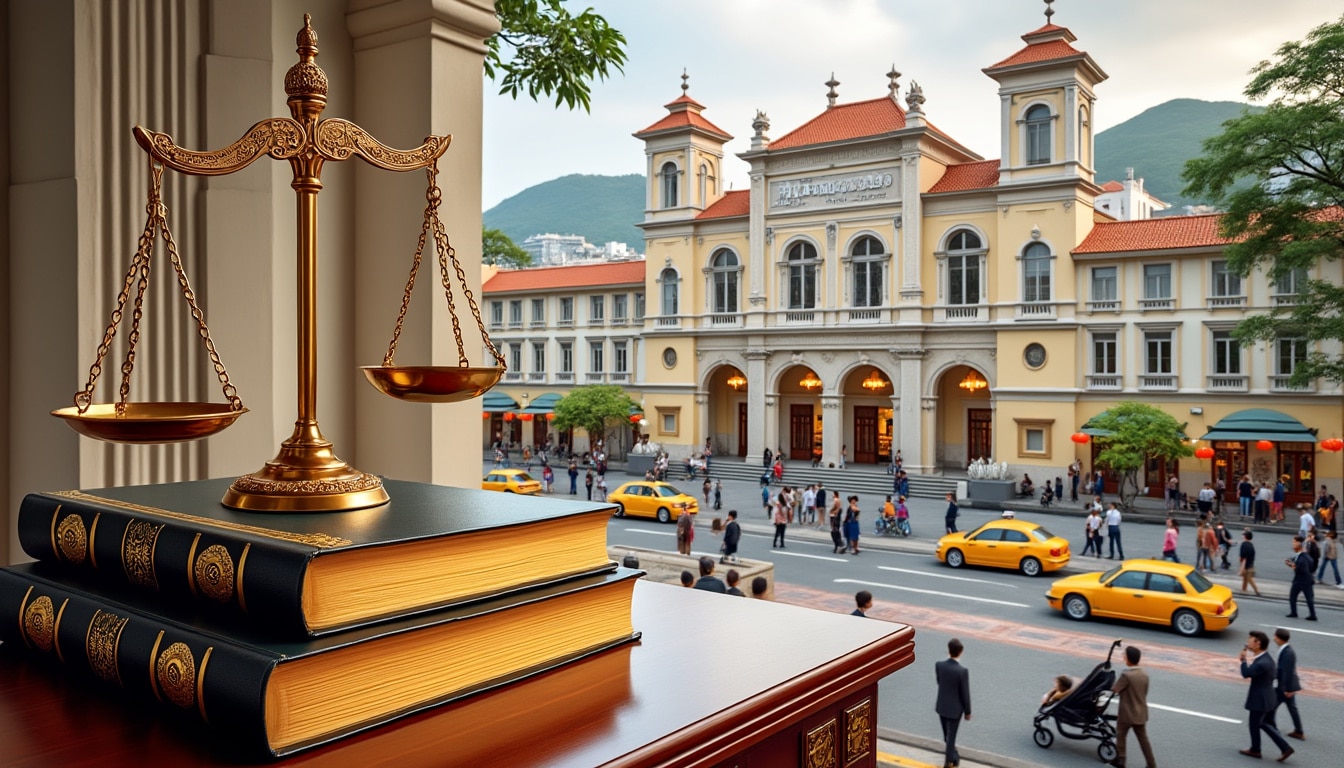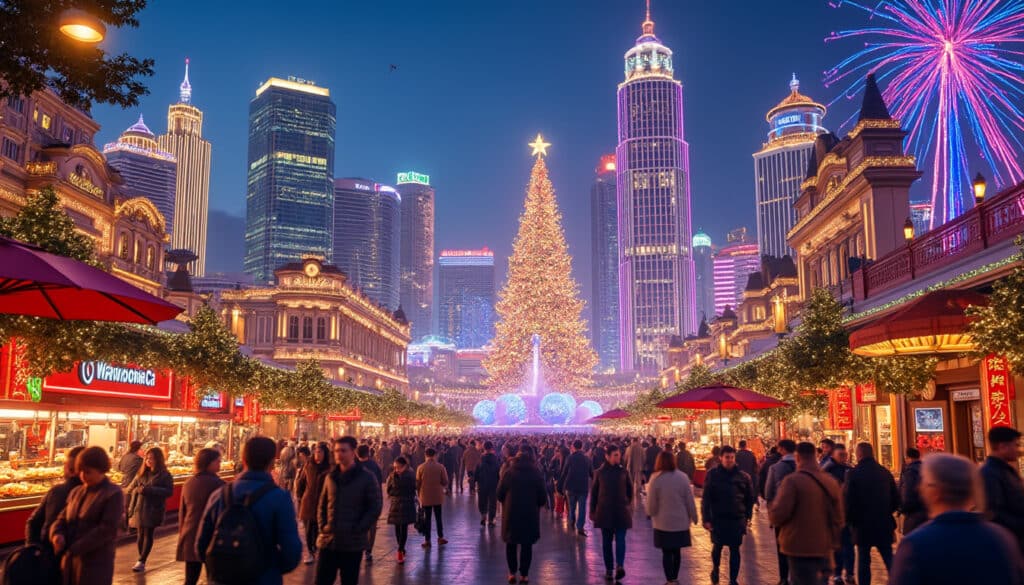In 2025, Macau continues to stand as a captivating blend of East and West. A Special Administrative Region of China, it thrives on its rich cultural heritage, vibrant casinos, and unique blend of Portuguese and Chinese legal traditions. This article delves into the intricate legal landscape of Macau, exploring how its legal framework influences daily life and business, while also maintaining a distinct identity within the vast expanse of Chinese sovereignty.
The Historical Foundations of Macau’s Legal System
The legal landscape of Macau is a fascinating blend of historical influences, primarily shaped by a mix of Portuguese and Chinese legal traditions. The foundation of Macau’s legal system is deeply embedded in its colonial past. The territory was a Portuguese colony for more than 400 years until its return to Chinese sovereignty in 1999. This historical event marked the beginning of a unique legal structure under the “one country, two systems” framework, allowing Macau to retain its separate legal system from mainland China.
Portuguese law predominantly influences Macau’s legal system, contributing to its classification within the civil law tradition that marks most continental European systems. The integration of Portuguese legal principles into Macau’s framework is evident, with the legal code written in Portuguese. Law students at the University of Macau are thus primarily tutored in this language, ensuring the tradition continues.
Influences from other European legal systems, such as German and Italian law, and certain aspects of common law, play a role in the modern legal framework of Macau. This eclectic mix has contributed to a sophisticated legal environment characterized by written legislation. Portuguese law’s influence is particularly prominent in areas like civil rights, commercial regulations, and legal procedures.
The Basic Law of the Macau Special Administrative Region, a Chinese Law endowed with constitutional rank, stands at the pinnacle of Macau’s legal hierarchy. Approved in accordance with the Sino-Portuguese Joint Declaration, this law exemplifies Macau’s distinctive position. While the Basic Law provides structural and functional guidelines, it draws parallels with the Basic Law of Hong Kong and incorporates aspects of the Portuguese Constitution concerning fundamental rights.
The seamless transition from Portuguese to Chinese rule meant that the pre-existing legal system remained largely unchanged post-1999. However, continuous modernizations and adaptations reflect Macau’s ongoing evolution. Fundamentally, the legal structure prior to the handover included numerous key institutions such as the Superior Court of Justice, Court of Justice of Macau, and various administrative courts, shaping today’s legal processes.
Today, Macau’s legal system continues to develop within the context of its historical foundations, ensuring it remains dynamic and capable of addressing contemporary challenges. This rich tapestry of legal heritage not only sets Macau apart but also underlines its unique standing within China’s broader national framework. Through continuous adaptation and respect for its dual heritage, Macau preserves its identity while contributing to the legal and cultural diversity of the region.
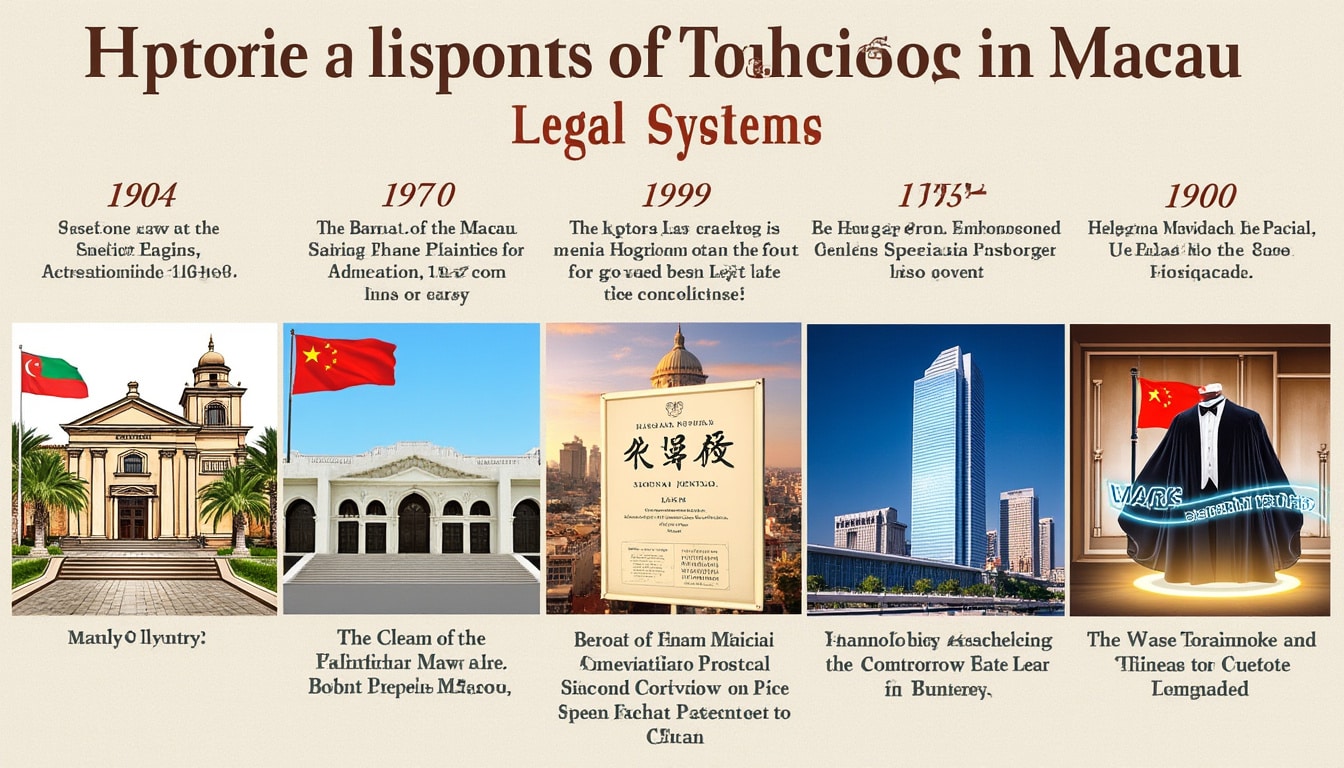
Understanding Macau’s Judicial System
Macau’s judicial system serves as a robust pillar of its civil society, providing a framework for justice and upholding the rule of law. This system is characterized by its three-tier judicial hierarchy, which includes the Court of Final Appeal, the Court of Second Instance, and the Primary Court of Macau. Each court plays a pivotal role in ensuring fair adjudication and upholding legal standards.
The Court of Final Appeal stands at the apex of Macau’s judiciary. Comprising three judges, it addresses critical legal issues and serves as the ultimate adjudicator in most cases. The Court of Second Instance, with its panel of five judges, reviews appeals from the lower courts, ensuring accuracy and consistency in legal interpretations.
At the base of the hierarchy is the Primary Court of Macau, where initial hearings and judgments take place. This court handles a wide range of cases, including civil, criminal, and administrative matters. Although trial by jury is envisaged in the legislation, it is not commonly practiced, which is a notable deviation from other legal systems.
Furthermore, the Administrative Court, a significant component of the system, specializes in cases involving disputes with public administration bodies. Such specialization ensures an efficient legal process, addressing the unique needs arising from the administrative actions of the Macau Government.
The Macau Judiciary is supported by an array of legal professionals, including the Macau Bar Association, which plays a crucial role in legal education and professional development. The association governs the legal community, ensuring adherence to high standards of practice and ethics among lawyers.
Additionally, the Macau Public Prosecutor’s Office is a key institution within the judiciary. It is responsible for overseeing the prosecution process and upholding justice in criminal proceedings. The office is led by a prosecutor general and assisted by various prosecutors who ensure that justice is administered effectively.
Provisions for judicial appointments and the independence of the judiciary are critical to maintaining the integrity of Macau’s legal processes. The Independent Commission for the Nomination of Judges oversees judicial appointments, ensuring that courts are staffed with competent and impartial judges. This structural independence is essential for maintaining trust in the judicial outcomes and promoting fairness.
The evolution of Macau’s judicial system reflects the region’s historical roots and its commitment to justice. While adapting to modern challenges, the judicial system remains rooted in its principles of fairness, impartiality, and adherence to legal traditions, providing a cornerstone for the region’s continued prosperity.
Legal Education and Professional Development in Macau
Legal education and professional development in Macau are crucial for sustaining the region’s distinct legal identity and ensuring a continuous stream of competent legal professionals. The University of Macau‘s Faculty of Law stands out as the preeminent institution for legal studies in the region, offering comprehensive programs across various languages.
Since its inception in the late 1980s, the Faculty of Law has been a beacon for legal education in Macau. It offers undergraduate and master’s programs in both Portuguese and Chinese, reflecting the region’s linguistic diversity and legal roots. The faculty also provides specialized master’s and postgraduate programs in English, focusing on EU, international, and comparative law, as well as international business law. These programs cater to the evolving needs of a globalized legal landscape and prepare students for a range of international careers.
The Faculty of Law’s curriculum is designed to integrate theoretical knowledge with practical skills, cultivating a well-rounded legal education. Courses cover essential areas such as civil law, commercial law, and administrative law, equipping students with a deep understanding of Macau’s legal environment. In addition to classroom learning, students engage in moot court competitions and internships, which provide invaluable real-world experience and foster critical thinking and advocacy skills.
- 🔍 Emphasis on linguistic proficiency in Portuguese and Chinese
- 🌟 Exposure to international legal frameworks through master’s programs
- 📚 Hands-on learning through internships and moot courts
- 🌍 Diverse career opportunities in global legal practice
The Macau Legal Information Centre, a vital resource for students and professionals alike, offers access to a wealth of legal documents, case laws, and legislative updates. This resource is instrumental in keeping the legal community informed and ensuring that practitioners remain up-to-date with the latest developments in Macau’s legal landscape.
The role of the Macao Lawyers Association in professional development cannot be overstated. This body regulates the profession, providing training, accreditation, and continuous education opportunities for legal practitioners. By enforcing ethical standards and promoting best practices, the association ensures that Macau’s legal community remains competent and trustworthy.
Macau’s commitment to nurturing legal talent is evident through ongoing investments in legal education infrastructure and programming. By fostering a dynamic legal education environment, Macau not only strengthens its legal framework but also enhances its standing as a key player in the global legal domain.
Business Law and Regulations in Macau
Macau, as a thriving hub for commerce and tourism, places a significant emphasis on its business law and regulatory frameworks. These frameworks are instrumental in facilitating business operations and attracting investments, ensuring the region’s economic vitality and global competitiveness.
The 1999 Commercial Code is a cornerstone of Macau’s business law, governing commercial activities and ensuring uniformity and fairness in business transactions. This code is meticulously crafted to cover a wide spectrum of commercial dealings including contracts, partnerships, and trading practices. The availability of the Commercial Code in English on the Macau Official Printing House website enhances its accessibility to international entrepreneurs and investors.
For organizations and individuals seeking to establish business operations in Macau, the Macau Trade and Investment Promotion Institute (IPIM) serves as an invaluable resource. IPIM offers support and guidance on investment opportunities, facilitating ease of entry into Macau’s vibrant economy. It provides pivotal services such as business-matching opportunities, investment consultancy, and assistance with navigating Macau’s regulatory environment.
The Macau Financial Services Bureau plays a crucial role in overseeing Macau’s financial market, ensuring regulatory compliance and financial stability. This bureau is responsible for the supervision of financial institutions, monitoring of financial transactions, and enforcement of anti-money laundering standards, thereby safeguarding the integrity of the financial system.
| 🛠️ Key Business Institutions | 🌟 Role |
|---|---|
| Macau Trade and Investment Promotion Institute (IPIM) | Facilitates business entry and growth |
| Macau Financial Services Bureau | Ensures financial regulation and stability |
| Macau Legal Information Centre | Provides up-to-date legal information |
The Macau Civil Registry is pivotal in overseeing the registration of business entities, ensuring legal compliance and facilitating unequivocal business operations. By maintaining comprehensive records and overseeing legislative compliance, it contributes to the transparency and accountability of business activities.
Overall, Macau’s business law framework is designed to provide a stable and conducive environment for business activities. By balancing regulation with facilitation, it attracts investment, fosters growth, and reinforces Macau’s position as a dynamic economic arena.
Civic and Regulatory Framework in Macau
Macau’s civic and regulatory framework is quintessential in maintaining the social order and protecting the rights of its residents. This framework is an intricate web of laws governing social, civic, and administrative aspects, essential to the region’s socio-economic health and public welfare.
Central to the civic framework is the Macau Basic Law, which not only establishes legislative guidelines but also outlines fundamental rights and freedoms. These legal protections ensure that the citizens of Macau enjoy comprehensive civil liberties, aligning with international covenants such as the International Covenant on Civil and Political Rights.
The regulatory landscape is further enriched by various administrative codes and regulations. These include provisions for urban planning, environmental protection, and public health, reflecting Macau’s commitment to sustainable development and quality of life. Through stringent regulations and enforcement by relevant authorities, Macau effectively manages its urban spaces, ensuring balanced development.
Law enforcement in Macau is supported by the efforts of the Macau Public Prosecutor’s Office, which upholds the region’s legal statutes and ensures efficient justice delivery. The Office, led by a Procurator General, actively prosecutes cases and ensures judicial processes adhere to statutory obligations.
Macau’s regulatory bodies, including the Macau Legal Information Centre, play a pivotal role in maintaining legal coherence and promoting civic education. Through dissemination of legal resources and hosting of civic awareness programs, these institutions empower citizens to understand their rights and responsibilities.
- 📜 Emphasis on fundamental rights and civil liberties
- 💼 Administrative regulations for sustainable development
- 🔍 Transparency in governance and regulatory processes
- 🏢 Efficient management and enforcement by regulatory bodies
The civic and regulatory framework of Macau aligns with its vision for sustainable growth and an equitable society. By placing a premium on civic responsibilities and regulatory compliance, Macau inspires confidence among its residents and investors, bolstering its overall social and economic fabric.
FAQ
Here are some frequently asked questions about the legal system and regulations in Macau:
- What language is the primary medium for legal education in Macau? Portuguese is the primary language for legal education, reflecting Macau’s historical ties and legal framework.
- What roles do the Macau Trade and Investment Promotion Institute (IPIM) play in the business sector? IPIM facilitates business ventures, offering consultancy and business-matching services to potential investors and entrepreneurs.
- How is the Macau Judiciary structured? The judiciary is structured into three tiers: the Court of Final Appeal, the Court of Second Instance, and the Primary Court, ensuring a comprehensive judicial oversight.
- What is the role of the Macau Public Prosecutor’s Office? It oversees legal proceedings, ensuring justice is served efficiently through prosecution and adherence to statutory laws.
- What is the significance of the Basic Law in Macau? The Basic Law provides constitutional stability and outlines fundamental rights, anchoring Macau’s governance within the “one country, two systems” framework.
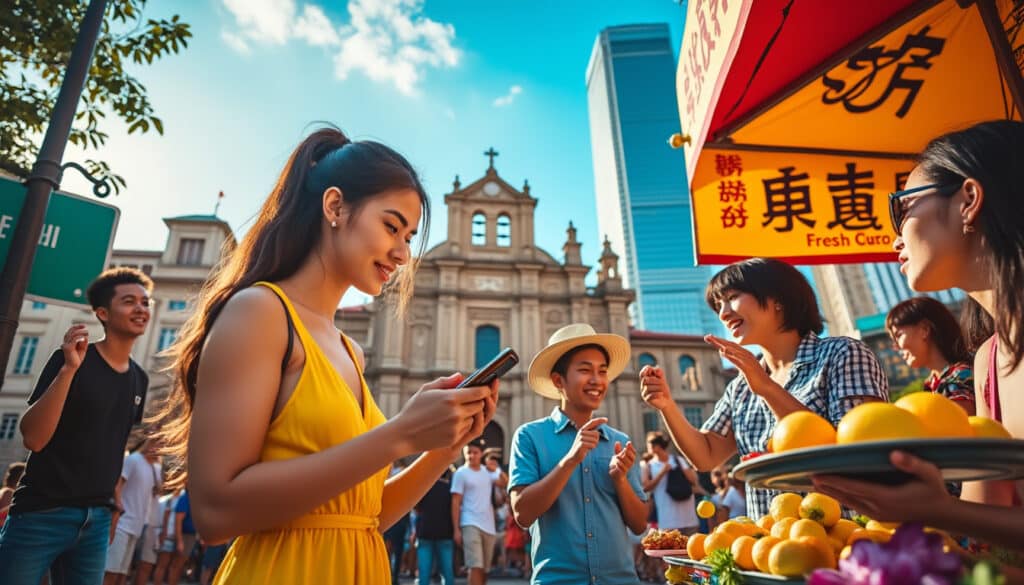
Calling and communication rules in Macau
Macau, a vibrant blend of Eastern and Western cultures, is not only renowned for its bustling casino scene and historic architecture, but also for its dynamic communication infrastructure. Whether connecting with business associates or loved ones, understanding the calling and…
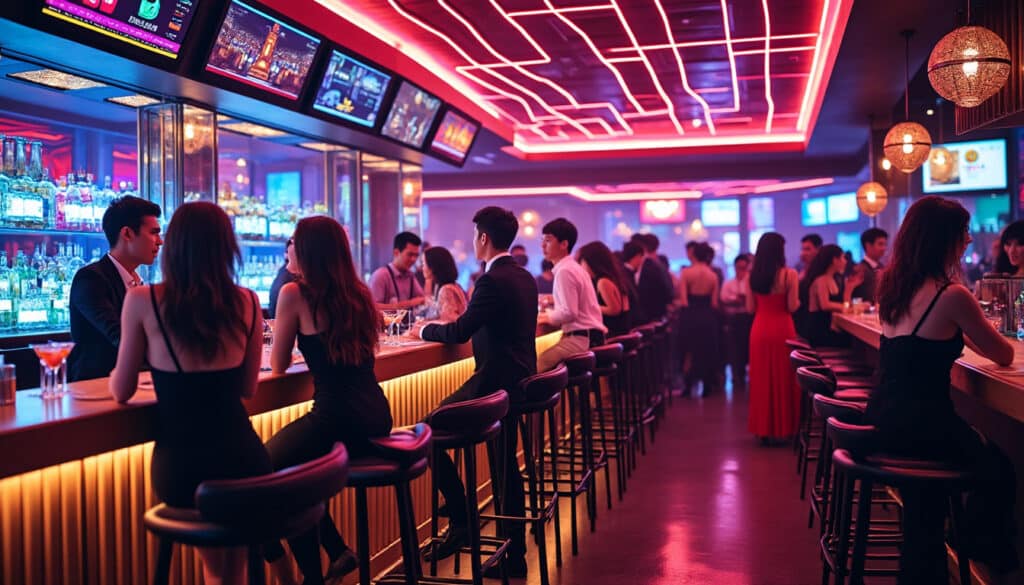
Drinking and age restrictions in Macau
Macau has long been a vibrant hub known for its bustling mix of casinos, cultural heritage, and a lively nightlife that attracts tourists from all around the globe. As of November 2025, this dynamic city is making headlines not only…

Moving to Macau, the glittering oasis of culture and entertainment in Asia, can be a thrilling prospect for many expats and digital nomads. Known for its unique blend of Portuguese and Chinese influences, Macau offers not only a high quality…
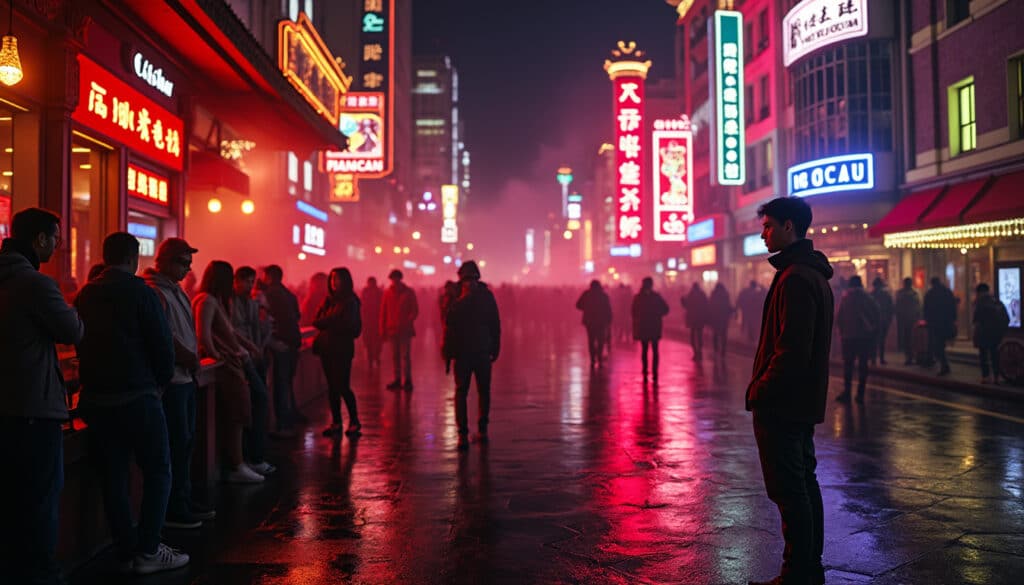
Smoking, drugs, and red light laws in Macau
Macau, often heralded as the Las Vegas of Asia, offers an exciting blend of glitzy casinos, rich cultural heritage, and vibrant nightlife. Nestled in this luxurious backdrop lies a fascinating intersection of smoking, drug, and red-light laws that contribute to…
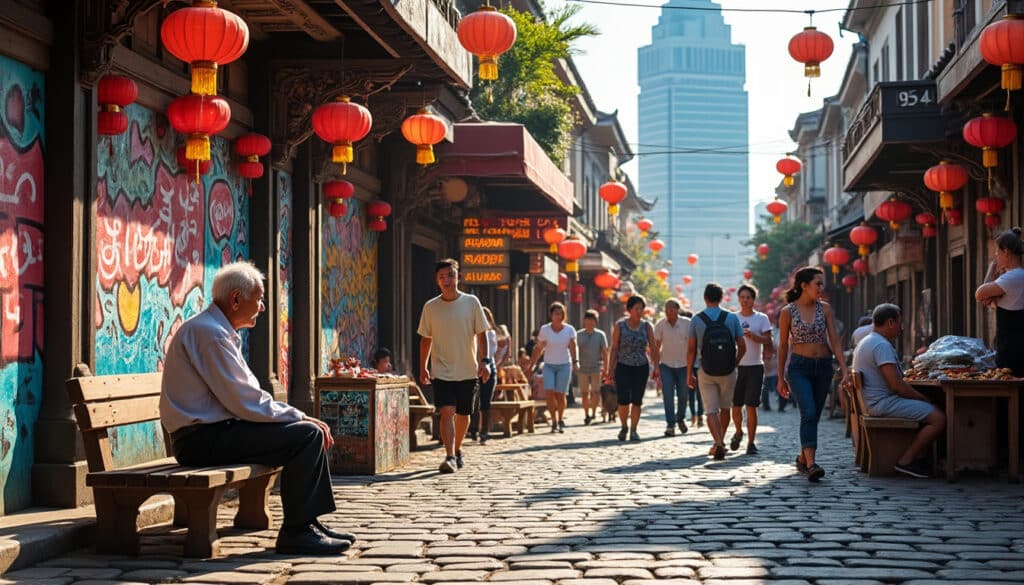
Social and discrimination issues in Macau
Macau, nestled on the southern coast of China, is well known for its glittering casinos and bustling streets that draw visitors from around the globe. Yet beneath the vibrant exterior lies a complex tapestry of social and discrimination issues that…
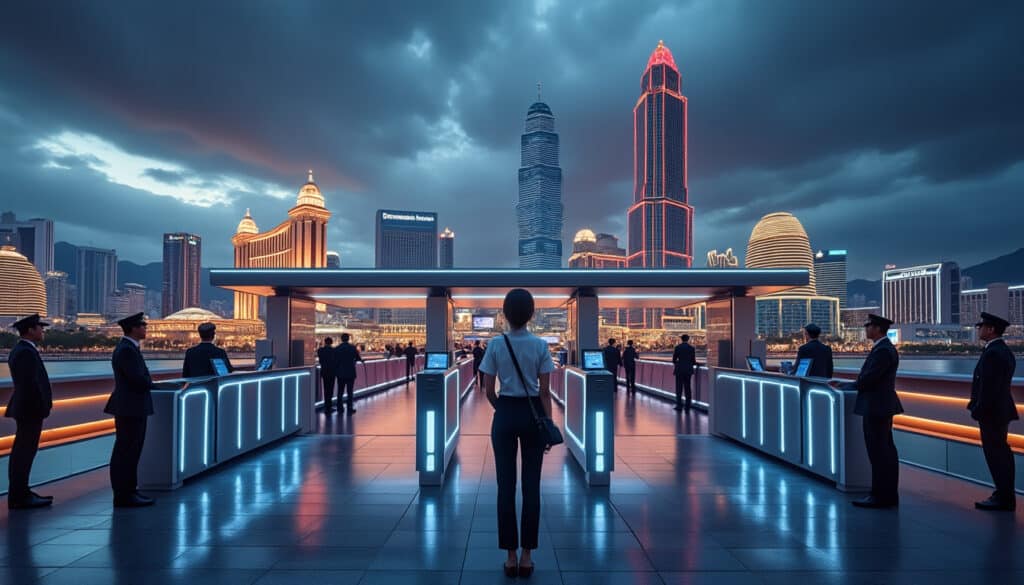
Criminal status and entry to Macau
Navigating the world of entry requirements for Macau can be complex, especially for individuals with a criminal record. As a vibrant city known for its blend of Portuguese and Chinese culture, Macau attracts tourists and professionals alike. However, understanding the…

